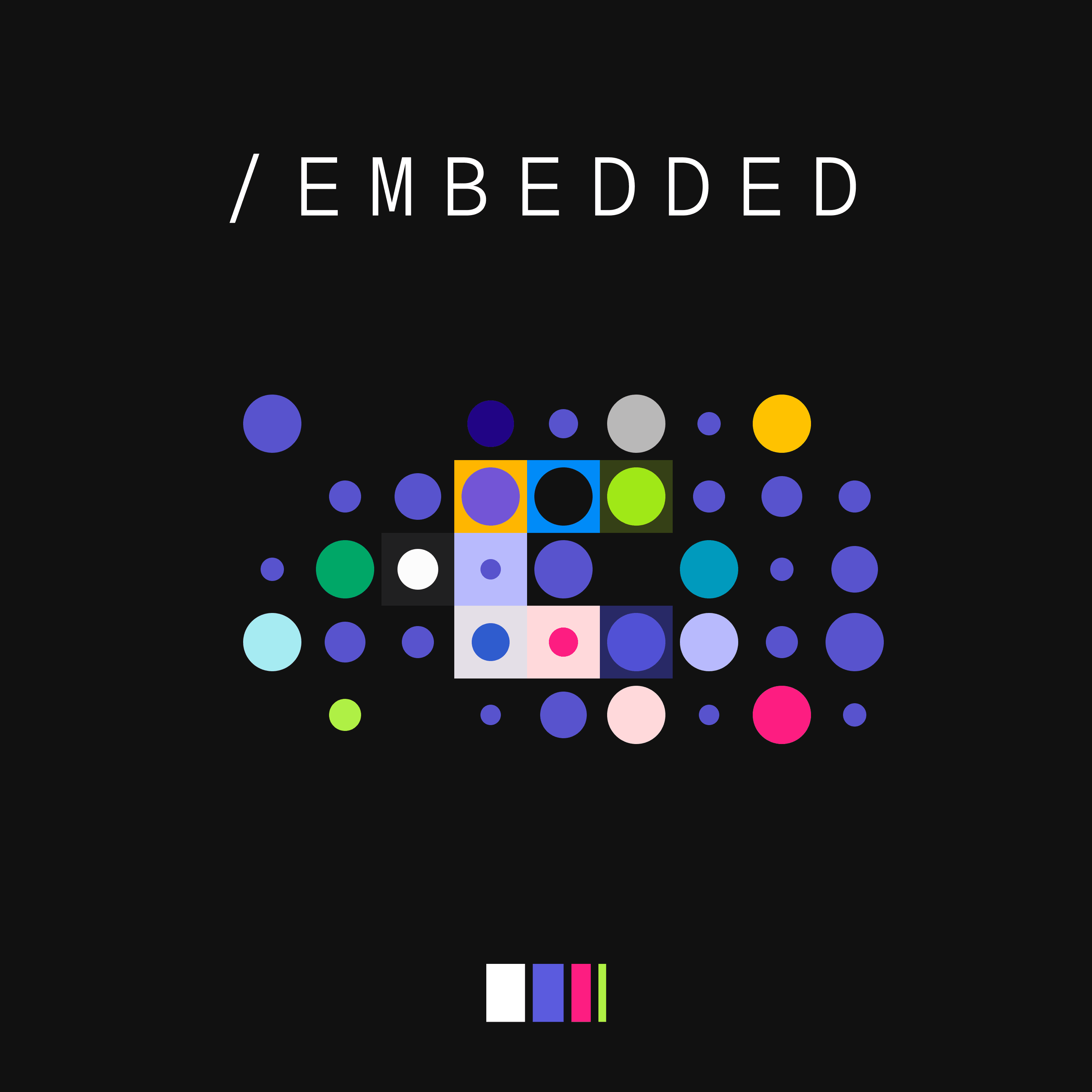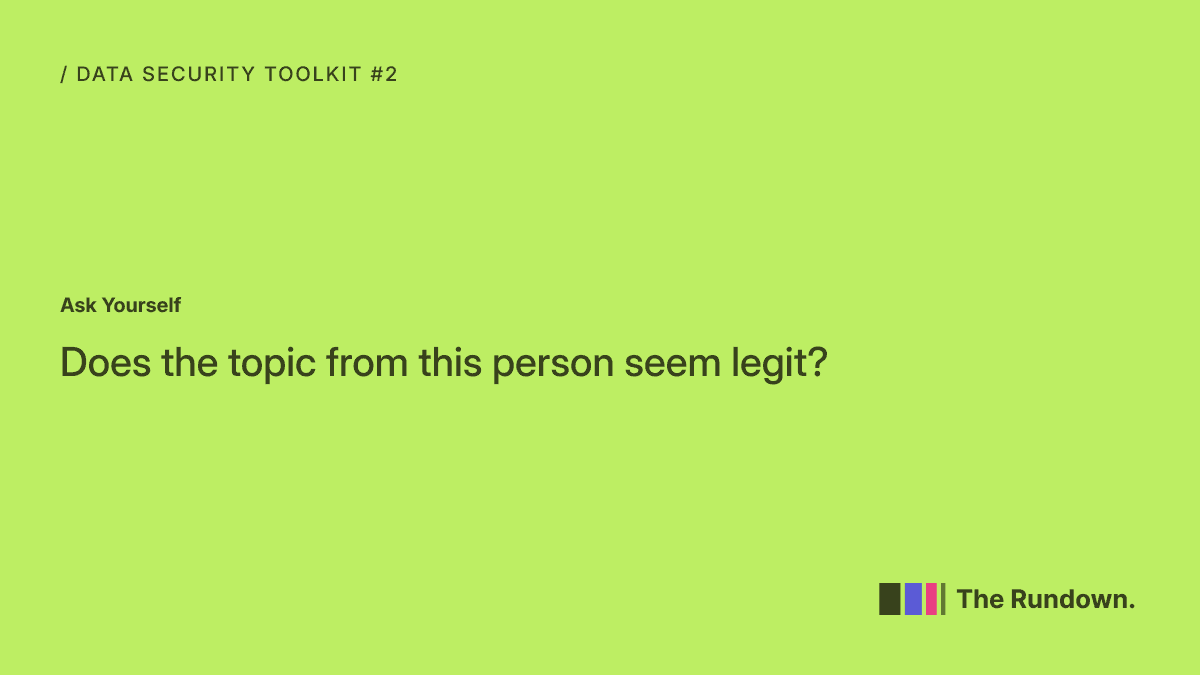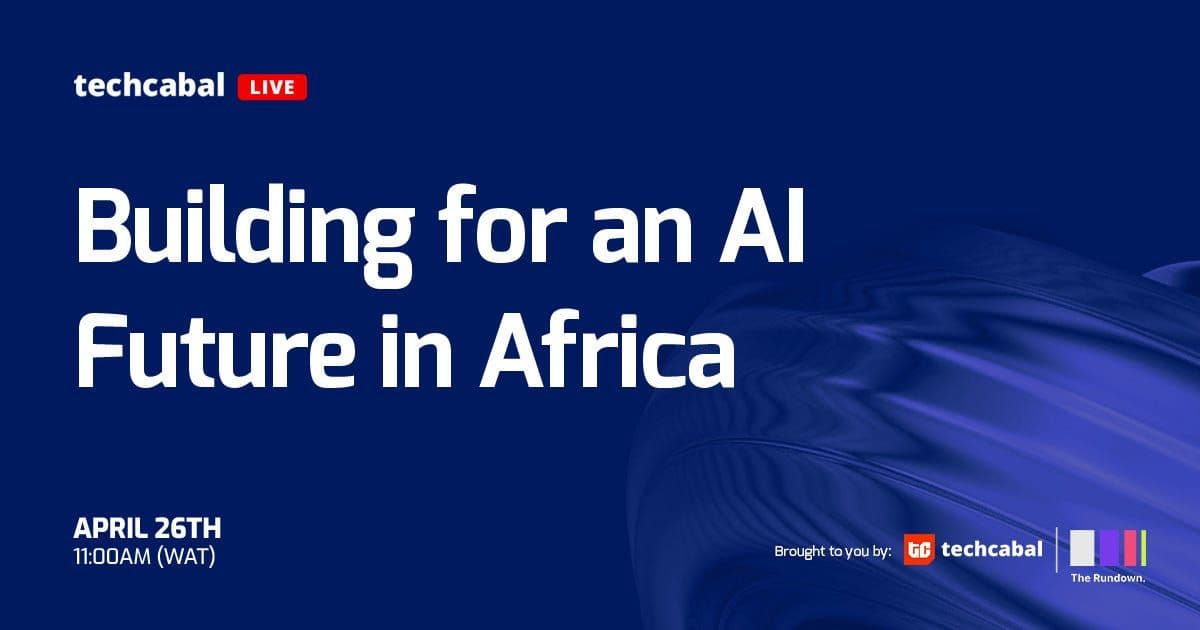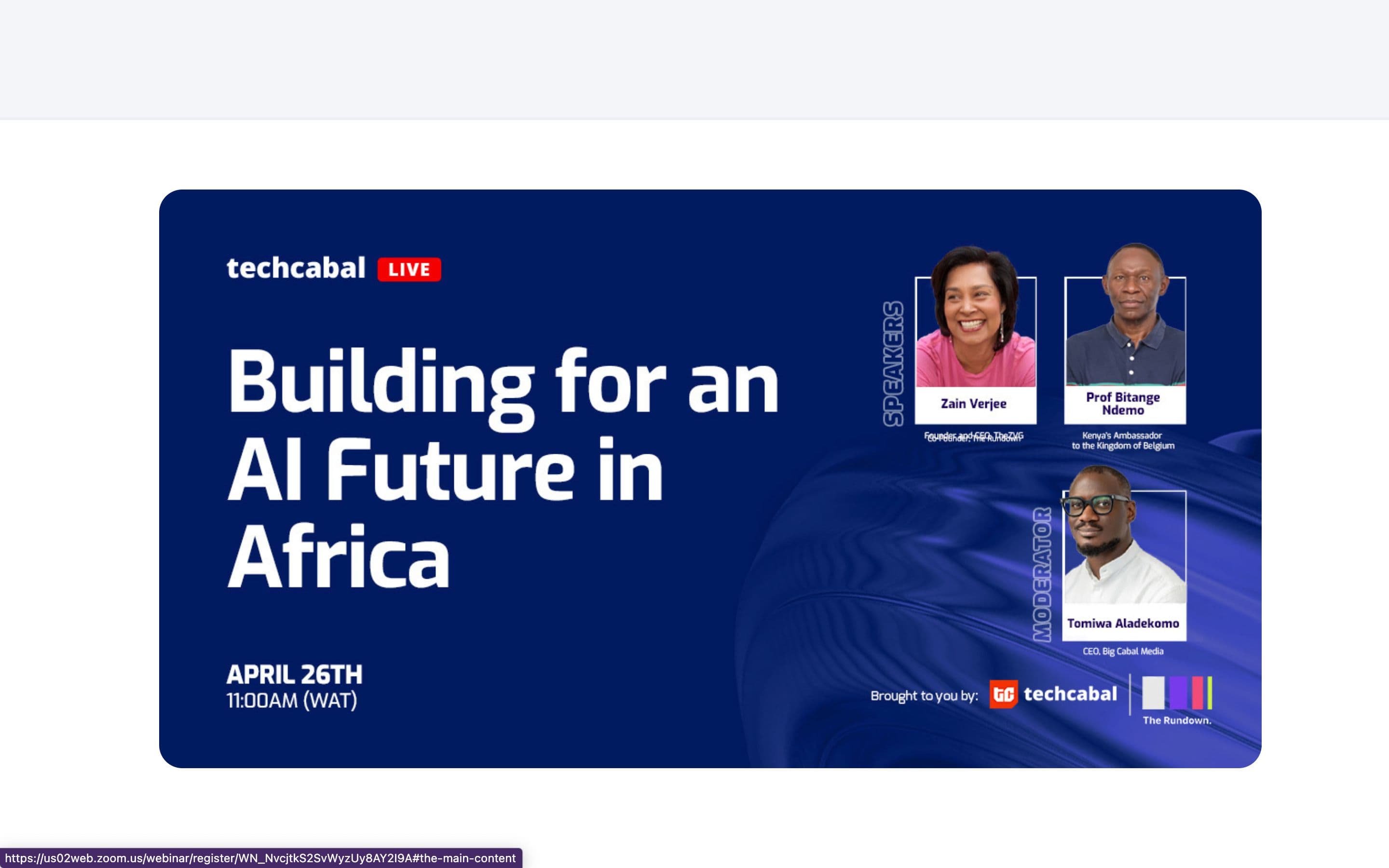Shady stuff with Slim Shady, AI election tracker and the techno-colonization debate
Event Alert: Building for an AI future in Africa. The Rundown Studio is excited about its first online event in partnership with Tech Cabal. Register now.

The Rundown Team is working on a podcast series entitled Embedded. This series will explore the space between technology and its impact on communications. How it changes the work and thinking of leaders running communications teams, PR specialists, newsrooms and journalists. We are currently recording interviews with experts, aka really cool people, pushing the boundaries of ideas, for instance in change management, newsrooms, misinformation and disinformation, Africa, ethics and data sets. Stay tuned for season one. Please do subscribe to The Rundown and support our work. It keeps us encouraged, and the lights stay on.

AI Election Tracker to Note
Rest of World has created a database on how AI is being used for mis/dis information and political campaigns. “The goal is to create a database of examples that can be used to understand the many ways in which AI is being deployed around elections.” It’s crazy and rather creative.
- A political AI Starbucks cup in Mexico in honor of an opposition candidate
- A fabricated video shows vice president-elect insulting free lunch program
- Indian opposition makes Narendra Modi a singer
- A ChatGPT-powered virtual candidate designed to inform voters in the Belarusian elections while flouting censorship
- AI videos allowing Pakistan’s former Prime Minister Imran Khan, who is currently imprisoned, to deliver speeches from behind bars.
- A spam campaign to discredit Taiwan’s president was traced back to an actor associated with the Chinese Communist Party
- Deepfake videos showed Bangladeshi candidates withdrawing from the elections on election day.
Shady stuff with Slim Shady:
Making the rounds: An Eminem Fake Clip Backing the South African Opposition Party. Not real.
A video posted to TikTok by a South African meme and politics account shows a digitally altered Eminem endorsing the Economic Freedom Fighters (EFF), South Africa's third-largest political party. In the video, the rapper calls out administrative failures by the ruling African National Congress (ANC) party in a stilted and robotic voice. Fact-checking organization Africa Check found the video to be an alteration of a 2009 interview between Eminem and British talk show host Jonathan Ross, with the rapper’s mouth digitally modified to match the new audio. The video has amassed over 373,000 views. Instagram has labeled the video as “False Information,” but unlabeled versions persist on TikTok and YouTube - Africa Check
A Rundown Moment:

- There are AI tools that analyze mouth and face movements to see if it are real
- Just watching the Eminem clip shows robotic mouth movements, which feels unnatural
- Not in synch
- He looks older today than in the clip! So not filmed recently.
Also, Africa Check asks you to ask yourself questions, “zoom out,” and use common sense about the plausibility of the video:
Does it make sense for the US superstar rapper Eminem, who has never been publicly involved with South African politics, to talk about a conversation with a relatively unknown member of an opposition party and strongly express his opinion on who the country should vote for?
Why would the video only appear on South African social media and not be picked up by legitimate news outlets or the rapper’s own accounts?
More tips are here thanks to AfricaCheck.org.
Weekly Round Up Podcast
Here’s our latest installment. You can listen or read below. Whatever works for you!
AI Eleven Labs Zain’s voice generated
Techno-colonialism
Tech giants like Google, Meta, and Microsoft are investing billions to develop the world's top AI models, using huge data resources, computing power, and expertise. Models like Chat GPT-4, Meta’s Llama3, Anthropic’s Claude 3 Opus, and Google’s Gemini Ultra represent the cutting edge, with costs running into the hundreds of millions, or more, for training. There are fears that the dominance of big AI companies is creating a form of techno-colonialism. This will force developing countries to be rule-takers, not rule makers. But an opposing view is that AI may finally give emerging economies opportunities to rewrite their fortunes. As a disruptive technology, AI could actually change traditional economic power structures.
According to a recent IPSOS poll, more than 70 per cent of Indonesian, Thai and Mexican respondents thought AI would be more beneficial than harmful, as opposed to 37 percent in the US and France. Newcomers and smaller players may be able to use AI to reshape industries and invent entirely new business models, rather than being dominated by the existing tech titans.
China has been quick to apply AI to real-world uses. Although big tech does own the AI, they can’t control all the ways in which it is applied. How developing economies use AI to create solutions in a localised context will be key to using it to it’s best potential.
Event Alert: Building for an AI future in Africa
Our first event is in partnership with TechCabal. We are online, and we are excited about this. Register here.

Artificial intelligence has the potential to bring about significant changes in Africa, particularly in sub-Saharan regions, across various sectors like healthcare, agriculture, and education, but, Africa still faces challenges.
Join us on Friday, April 26th, 2024, for another edition of TechCabal Live, where Tomiwa Aladekomo, CEO of Big Cabal Media, will be speaking with Zain Verjee, co-founder, The Rundown, and Prof. Bitange Ndemo, Kenya’s Ambassador to the Kingdom of Belgium, on Building for an AI Future in Africa. They’ll be addressing how to improve infrastructure in Africa, particularly in data centers, to support the implementation and effectiveness of AI solutions across various sectors.
Llama 3, Imagine
Take a look at your WhatsApp app, Instagram or Facebook. There’s something new. Meta has just dropped the new Llama 3 model, and they're making some bold claims. According to Meta, Llama 3’s improved capabilities and better reasoning abilities bring it a huge step closer to actual human-level intelligence. And the model is seven times larger than its predecessor, the Llama 2, which didn’t have the best reception. Llama 2 caught some flak for being a bit too sanctimonious and not engaging well enough. Meta's president, Nick Clegg, admitted people found it unhelpful at times.
But with the new Llama 3, they've worked hard to reduce the "false refusals" and make this AI assistant way more responsive. One of the coolest aspects is that unlike Google and OpenAI's closed models, Llama 3 will be open source. That means developers can freely build apps and products with it for no cost. The assistant can answer questions, create animations and generate high quality images. If you have access to the beta, check it out. Open up your Whatsapp, then start a prompt with the word “imagine.”
I got some obvious ones: dog, car, hat. But it needs some work; it was too literal in some instances and refused to do others, it either did not understand or confused my dog King Charles Spaniel with King Charles III and would not render the pup. Still, it was cool to do it on What’sApp and get an image in response.
TED in 40 years, and a drone style Sora AI video
OpenAI just did a big collab with TED Talk and filmmaker Paul Trillo using their new Sora AI. This FPV drone-style video takes viewers on a journey through futuristic conference venues, strange labs, and even underwater tunnels. To get the cinematic look, Trillo said he used prompts like "35 millimeter" and "depth of field lens vignette"; otherwise, Sora defaults to a more video game-like aesthetic. However, Sora is still an early-stage technology with major limitations.
What will TED look like in 40 years? For #TED2024, we worked with artist @PaulTrillo and @OpenAI to create this exclusive video using Sora, their unreleased text-to-video model. Stay tuned for more groundbreaking AI — coming soon to http://TED.com
Trillo admits Sora is currently "like a slot machine" that blends ideas without sticking to real-world physics. OpenAI itself has acknowledged that Sora can't accurately model basic interactions like shattering glass. So while visually impressive, this cool TED Talk video shows both Sora's imaginative potential and its distance from true realism and consistency. It's a showcase of AI's imagination running wild, even if reality hasn't quite caught up yet. You should definitely check out the video, it’s on TED talks twitter page.
Drake Uses AI Tupac and Snoop Dogg Vocals on ‘Taylor Made Freestyle
Drake’s new track called "Taylor Made Freestyle" which features AI-generated vocals from Tupac Shakur and Snoop Dogg. This is one of the first and biggest examples of AI-generated music being used in the mainstream. And the result is pretty impressive. We've reached a level where AI can mimic iconic artists' voices with incredible accuracy, making it nearly impossible to tell the real from the fake in this song. Although we will likely be seeing some new conversations about the ethics of all this especially when it comes to using AI to "revive" artists without their families or estate’s consent,. You can check out the track on Drake’s Instagram. Can you tell that it’s AI?

Interested to learn more?
Sign up today to get notified on the future of communication and AI
More from the blog
A data security toolkit for you on digital mindfulness, who is Mr100, and Mona Lisa raps
"Do not walk down the street with your bag open and your wallet out.” This series is focused on your personal digital hygiene and practices.
AI for Education in Africa
Experts caution that the adoption of AI in African education needs careful consideration of cultural context, data representation, and inclusion.
Keeping good company with EVI, Your Empathetic Voice Interface
Hume has created a conversational partner who leads with emotional intelligence and empathy. 10 years of training—this is the result.
Meet AI Zain and ask a host of questions about ethics, efficiencies and empathy.
Make sure that using yourself as an avatar does not impact your professional reputation or credibility. It’s innovative and can scale, but it could also be seen as a gimmick.